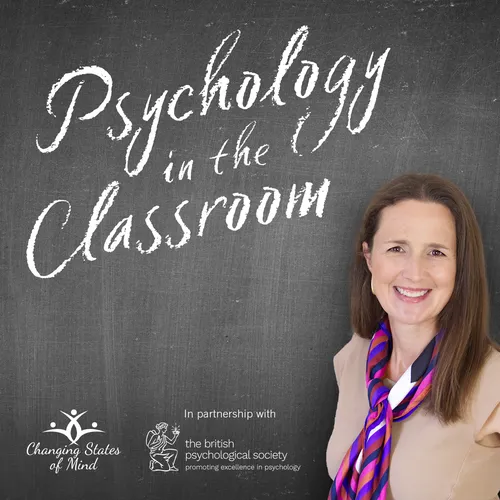
Psychology in the Classroom
The show that takes psychological research and translates it for classroom teachers so they can effectively apply it to their teaching practice to help improve outcomes for their students. Interviews with leading psychologists and other experts in the field of education, as well as deep dives into educational theory and a little bit of neuromyth busting.
- Update frequency
- every 6 days
- Average duration
- 28 minutes
- Episodes
- 105
- Years Active
- 2022 - 2025
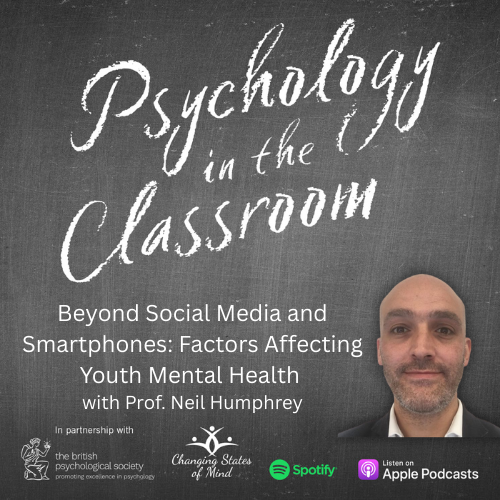
Beyond Social Media and Smartphones: Factors Affecting Youth Mental Health
...with Prof. Neil Humphrey
In this episode Professor Neil Humphrey from the University of Manchester, discusses trends in youth mental health, the rise in internalising issues like anxiety, and the …
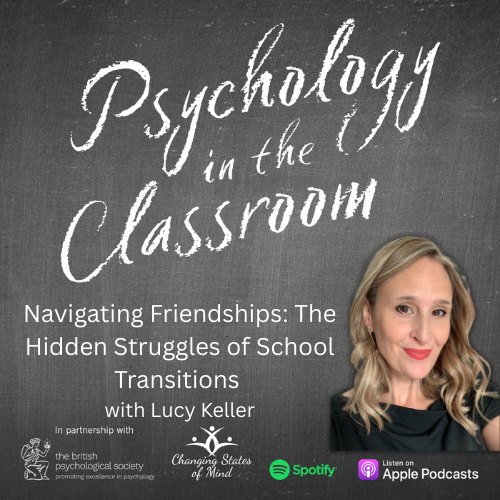
Navigating Friendships: The Hidden Struggles of School Transitions
In this episode Lucy Keller, a PhD researcher in psychology, discusses her work on improving friendship and social connectedness among young people during the critical transition from primary to seco…
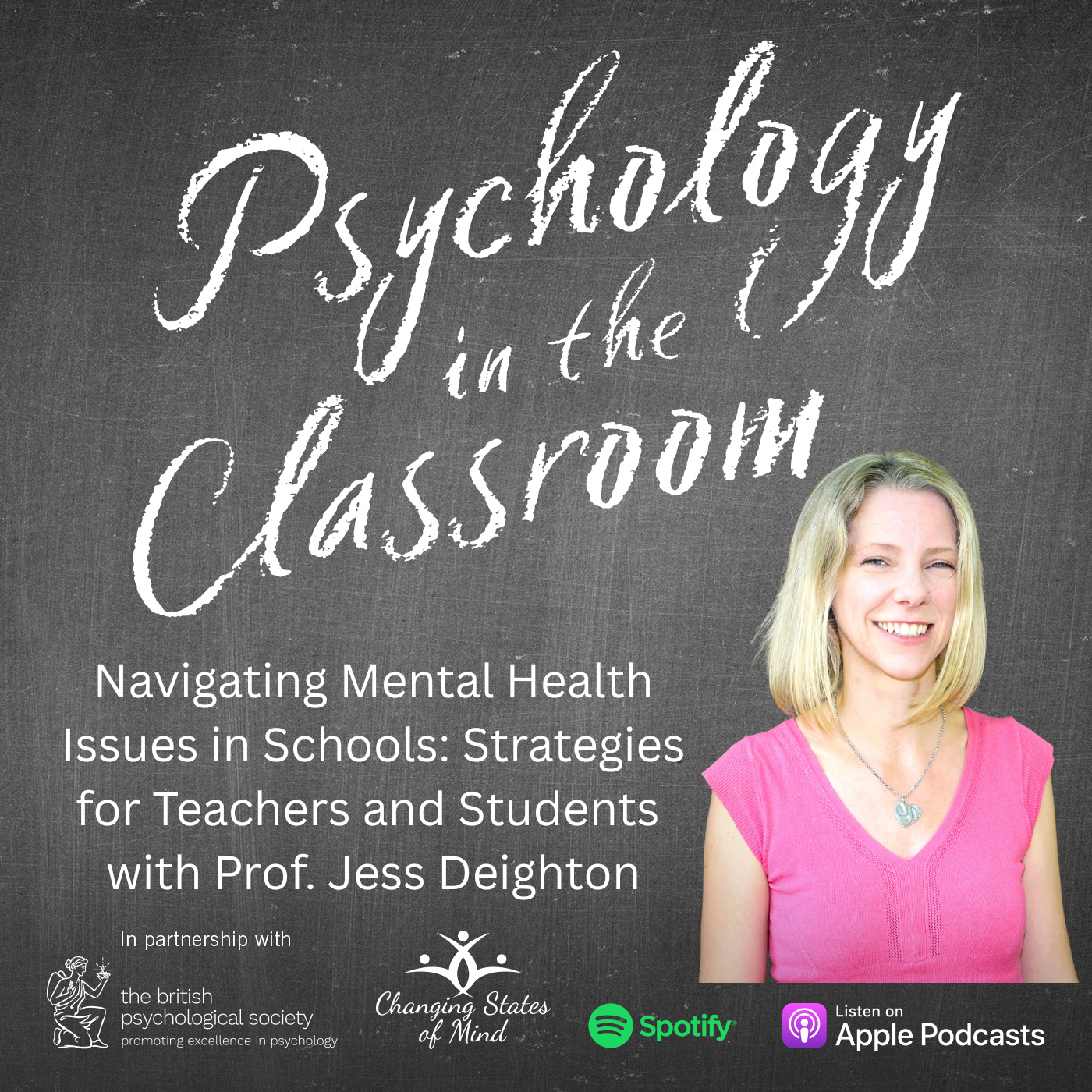
Navigating Mental Health Issues in Schools: Strategies for Teachers and Students with Prof. Jess Deighton
In this episode, Professor Jess Deighton, a leading children’s mental health expert, discusses the growing mental health challenges facing young people today and what this means for educators and sch…
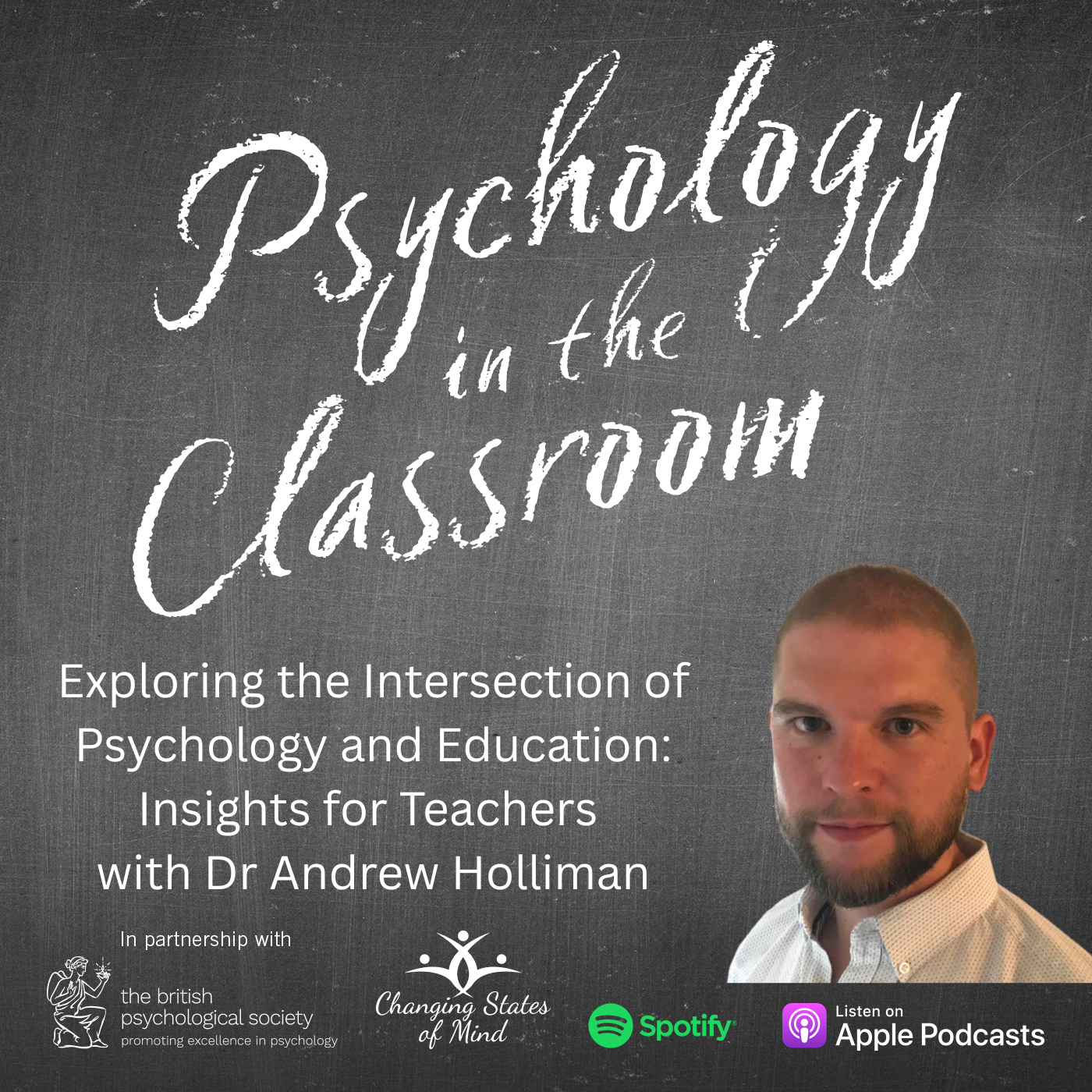
Exploring the Intersection of Psychology and Education: Insights for Teachers
In this episode, Dr Andrew Holliman, Associate Professor at UCL’s Institute of Education and chair of the BPS's Psychology of Education Section discusses the upcoming annual conference focused on psy…
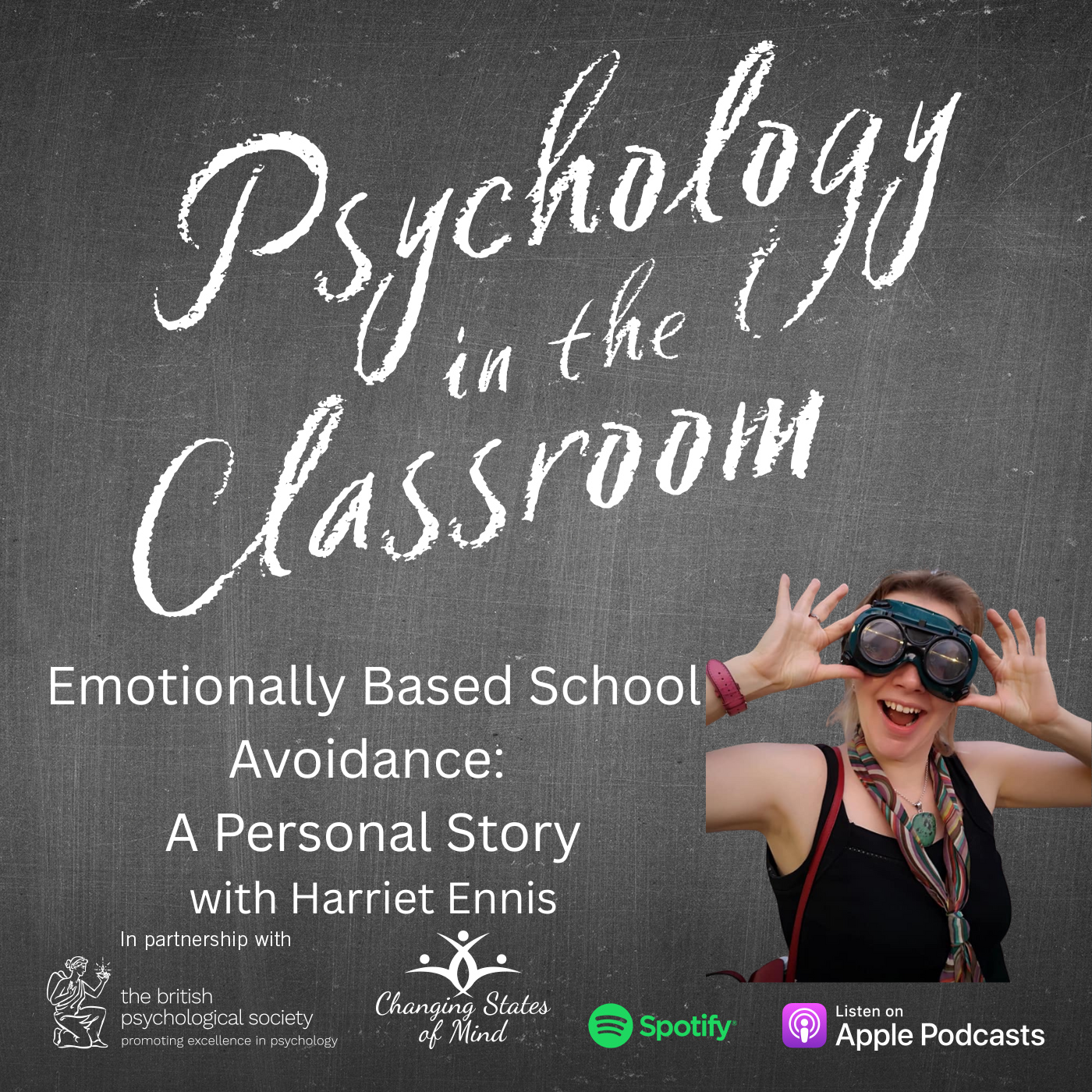
Emotionally Based School Avoidance: A Personal Story
In this deeply personal episode, I’m joined by Harriet Ennis, a psychology teacher from York and this year's winner of the British Psychological Society's Pre-Tertiary Education Psychology Teacher of…
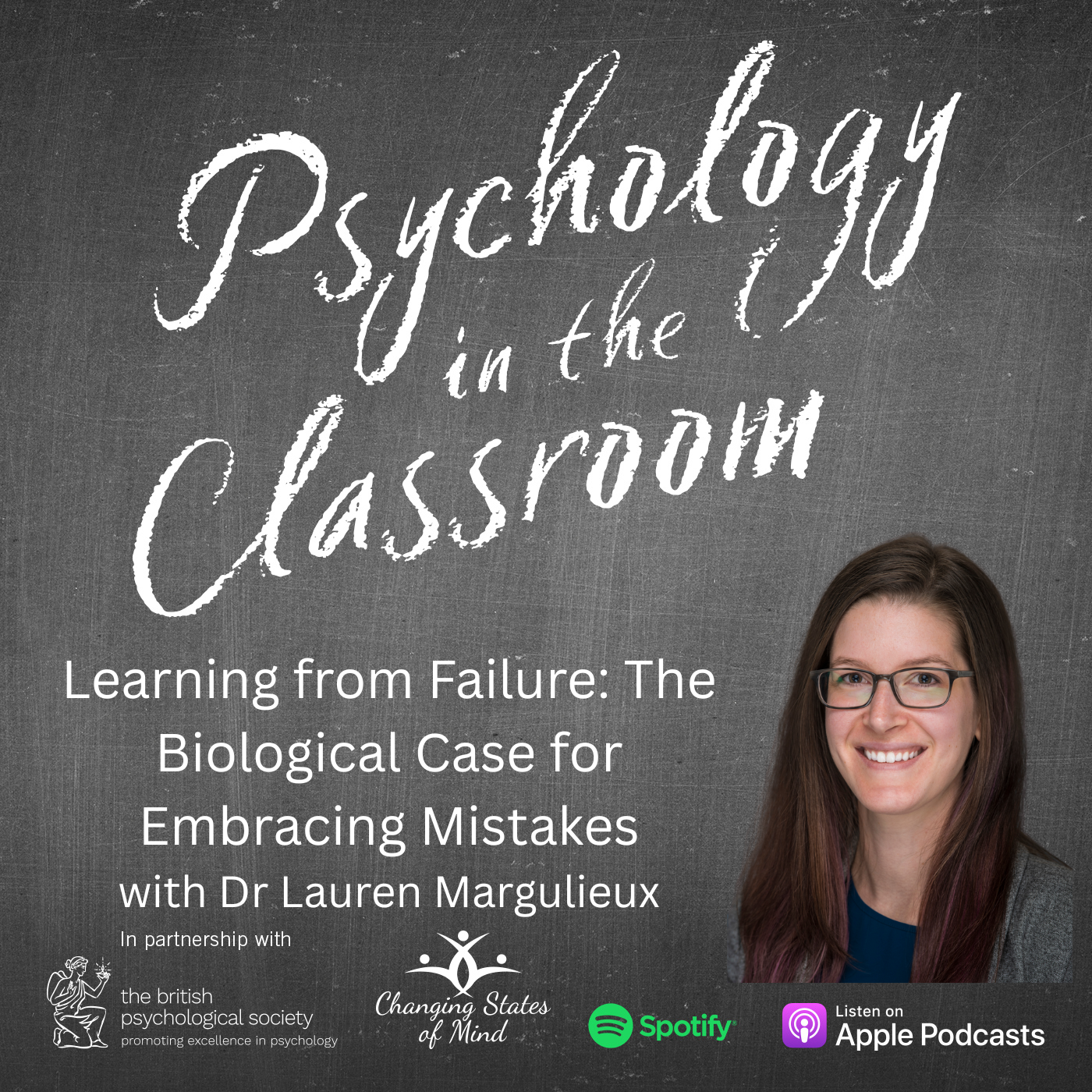
Learning from Failure: The Biological Case for Embracing Mistakes
In this episode of Psychology in the Classroom, Dr. Lauren Margulieux helps explore why failure isn't just a learning opportunity—but a biologically powerful one. Drawing on neuroscience, Lauren expl…
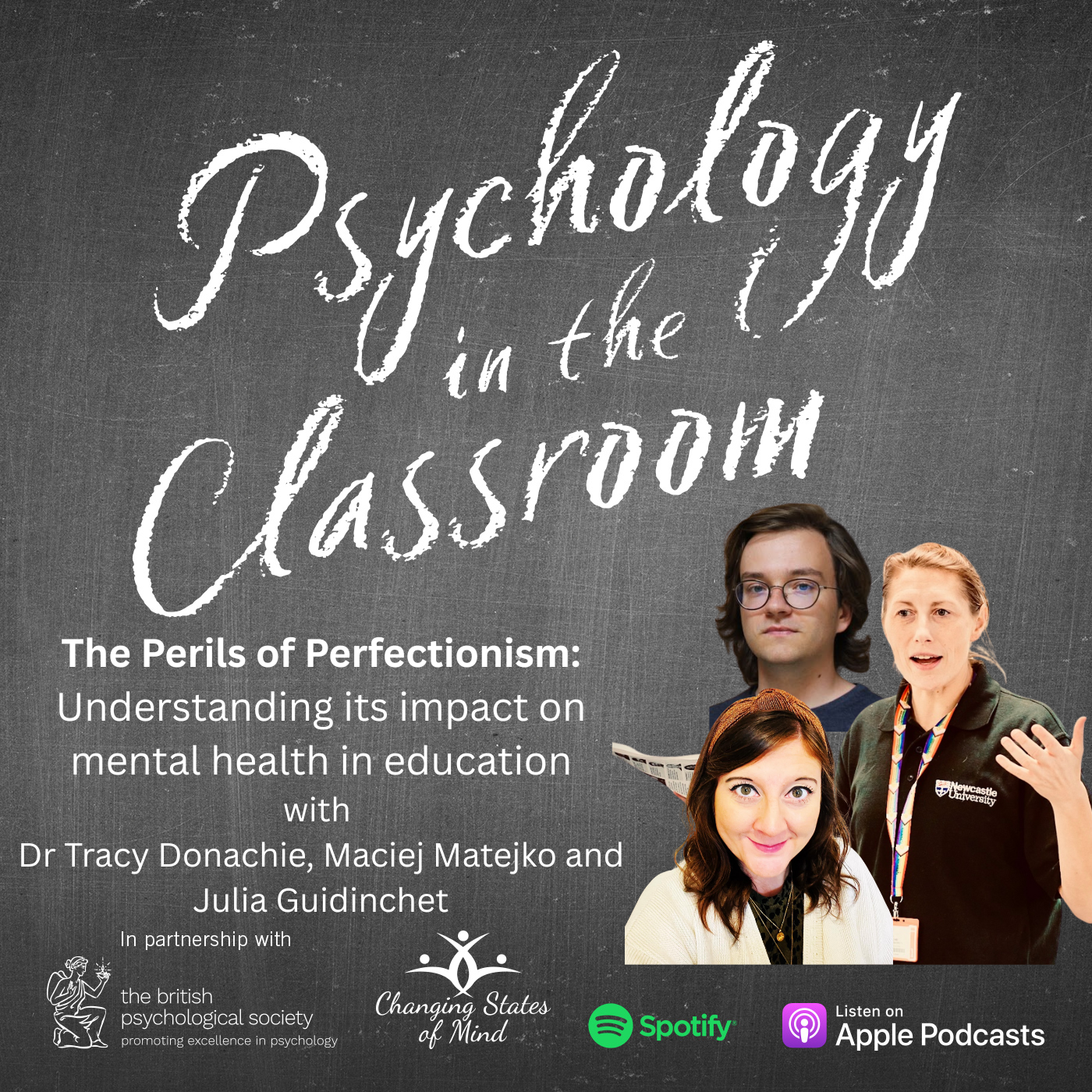
The Perils of Perfectionism: Understanding Its Impact on Mental Health in Education
In this episode we explores the impact of perfectionism on exam anxiety, particularly among neurodivergent individuals. Dr. Tracey Donachie, a lecturer in sports and exercise psychology, discusses th…

First do no harm: Universal Mental Health Interventions in Schools
Summary
In this episode Dr. Carolina Guzman Holst is a NIHR Research Fellow at the University of Oxford, discusses her recent paper titled Scoping review: potential harm from school-based group menta…

The Process of Learning is Uncomfortable
This month Dr Katy Burgess, Senior Lecturer in Psychology at Cardiff University, talks about her research into students’ learning - what they do and how effective they think this is - this is useful …

Peer Support for Neurodivergent pupils
The NEurodivergent peer Support Toolkit (NEST) is a set of free resources for staff in mainstream secondary schools who wish to facilitate peer support for neurodivergent young people. The toolkit wa…

RE-STAR - From Emotional Dysfunction to Emotional Burden
This is the 7th podcast from the RE-STAR team and Professor Edmund Sonuga-Barke and Dr Georgia Pavlopoulou share the findings from work package one. This episode explores how the RE-STAR team has col…

Improving Mental Fitness in Schools with Vi Gandhi
In this week’s episode Purvi (Vi) Gandhi shares her knowledge about implementing effective and evidence based strategies to improve mental health or mental fitness in schools.
Vi has recently publish…

Reframing Mindfulness for Teachers
On World Mental Health day 2024 Psychology in the Classroom discusses Mindfulness. We eschew the ‘Crystals and Muesli’ version and reframe it to ask how to be more attentive, calmer, more grounded, m…

What have we learned about failure?
In this final summary interview with Prof. Dr. Suzanne Narciss, we review all our learning about failure over the last few months. There is much we can do to encourage our students to learn from erro…

What do parents communicate about failure?
More than one in 10 children ‘almost always’ or ‘often’ fear failure. But where do they learn this from?
This fear can often pass from parents to children. Parental communication about failures and s…

The Impact of Teacher Failure Mindsets
Today's discussion focuses on our perceptions, as teachers, of failure. When as a teacher we watch our lessons back on film where do we see failure and how do we respond? Reflecting on our own relati…

Teachers v Pupils: differing views of failure
How students and teachers navigate and prioritise different learning processes after encountering impasses during learning can be complex. Recognising that failure moments can be multifaceted, today’…

Errors and Alienation
How errors are handled in the classroom is an important aspect of teaching and has a variety of consequences for students' own dealing with errors, their learning and their performance. In classrooms…

Creating a Positive Error Learning Orientation
In order to learn from errors it is important that pupils regulate their emotions. The emotions that they feel when they make an error is underpinned by their Error Learning Orientation - whether the…

Motivating Students to Learn from Errors
This week find out how you can encourage students to persist with learning and engage with metacognitive strategies when they make mistakes. Dr Maria Tulis talks about her experiments that aimed to …